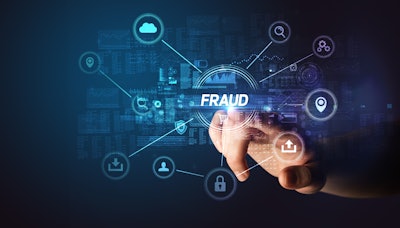
In March, the world witnessed a curious scene. A container ship longer than the Empire State Building became lodged in Egypt's Suez Canal, creating an incredible spectacle as heavy construction equipment and a fleet of tug boats tried to dislodge the vessel from the canal walls.
The trapped container ship may be entertaining, but it also exposed a critical element of the global economy – the primacy of supply chains.
Indeed, supply chains are the often-unseen backbone of modern business, and this incident can be a timely reminder for companies to appreciate the centrality of our interconnected economy. More specifically, as one report on post-pandemic supply chain management encouraged organizations, “anticipate, sense and respond to unexpected change and minimize their impacts.”
While there are numerous external factors, like a lodged oversized ship, that can impact supply chain efficacy, businesses can’t overlook less dramatic and more controllable supply chain elements that could disrupt their options. Notably, companies are uniquely positioned to evaluate and mitigate the role that employees and other trusted insiders can have on supply chain integrity.
For leaders looking to improve this foundational operational component, here are three ways that insider threats can negatively impact your supply chain.
1. Information integrity
Employees, contractors and other trusted insiders have unparalleled access to product information, intellectual property and company data. This includes on-site staff, but it also encompasses the expansive supply chain networks that glean valuable insights into sensitive product details or other valuable metrics.
Supply chains include more than physical assets. Digital supply chains that support the development and delivery of digital products are similarly vulnerable. Much like turning behavior analytics and activity monitoring in physical facilities, companies can use employee monitoring software to provide similar oversight throughout their digital supply chains to ensure that product information, intellectual property and other valuable information remains secure.
2. Cybersecurity
Companies have spent billions in the past few years augmenting their cybersecurity capacities to address the latest threat trends. That formula was turned upside down with the SolarWinds breach reported earlier this year. The expansive cybersecurity incident underscored the vulnerability of supply chains that power the digital economy.
Since as many as 80% of cyberattacks begin in the supply chain, companies should pay attention to their defensive posture related to their supply chains. Addressing accidental insider threats is a great place to start. Especially in an increasingly distributed work environment, securing employee accounts can help mitigate cybersecurity risks in the supply chain. These efforts can include:
● Requiring regularly updated passwords. According to one survey, 35% of people never change their passwords and many more change them infrequently, even after a data breach. Regularly updating strong, unique passwords can keep company accounts secure, even when a digital supply chain breach puts their integrity at risk.
● Enabling two-factor authentication. With billions of account credentials available on the Dark Web, this readily-available account security feature notifies employees when new account login activity is detected, allowing them to take action to prevent unauthorized account access.
● Providing a VPN service. As remote work plays a central role in the present and future of work, unsecured internet connections put data security at risk. Trusted VPNs can prevent snooping and data theft regardless of location.
● Using work-issued devices. The lines between personal and professional technology are blurry. To best secure data and IT infrastructure, require employees to use company-issued technology for work-related tasks.
Guidelines without accountability may be powerless to secure supply chains. Employee monitoring or other oversight capacity can help uphold these standards, preventing accidental threats from creating a cybersecurity catastrophe.
3. Brand erosion
After years of widely-reported and expansive data breaches, today’s consumers are firmly committed to data privacy and security. Not only are data breaches more expensive than ever before, but the long-term consequences can be devastating. It’s estimated that businesses can lose half of their customers after a data breach, and many companies will close forever as cash flow and recovery costs make continued operations untenable.
In this way, securing the supply chain is a bottom-line issue that businesses can’t ignore.
Similarly, supply chain leaks can diminish the excitement and media attention surrounding product announcements or other details, making public relationships and advertising initiatives less compelling and effective.
In total, securing the supply chain is a critical element of brand reputation, making insider threat preventing a foundational element of today’s interconnected operations.
A closing thought
Supply chain integrity is foundational for businesses operating in today’s interconnected economy. Whether an enormous ship is blocking a critical canal or less-obvious virtual risks threaten information integrity, disruption can have enormous consequences. That’s why businesses need to act now to survey their supply chain, developing the capacity to anticipate and respond to supply chain risks, minimizing the impact and optimizing opportunity.














